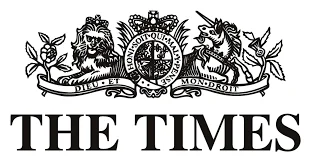American carriers that had long preferred Boeing began ordering Airbus aircraft due to benefits like wider fuselages and cockpit commonality across variants. Over time, this helped establish direct competition between the A320 family and Boeing’s narrowbodies.
In recent years, Airbus has gained momentum in single-aisle orders with its introduction of the A320neo ("new engine option") in 2010, which offered around 15% lower fuel consumption compared to previous models. The model quickly became popular; by now, thousands are operating globally. According to ch-aviation data referenced in Simple Flying's reporting (https://simpleflying.com/airbus-boeing-aircraft-backlog-comparison/), Airbus holds a backlog exceeding 7,100 units across its line and has delivered nearly 4,100 jets out of more than 11,000 orders—about 36% fulfillment—while Boeing has delivered just under 2,000 MAX jets from over 6,700 commitments (28%).
While both companies have produced successful widebody aircraft—such as Airbus's A330 and Boeing's enduring presence with models like the 777—the market has shifted toward efficient twin-engine designs. Though Airbus made attempts at larger quadjets like the A340 and A380 (the latter ceasing production amid declining demand), it is now focusing on twin-engine flagships such as the A350. Meanwhile, Boeing maintains strength with about a 56% share of global widebody fleets.
Much of Airbus’s recent advantage stems from setbacks faced by Boeing—notably issues related to its MAX program. Following two fatal crashes tied to problems with an automated flight control system (MCAS), regulators grounded all MAX planes worldwide between March 2019 and November 2020. Further quality control lapses led authorities like the FAA to cap monthly production rates (https://www.faa.gov/newsroom/faa-administrator-statement-boeing-production-quality). These ongoing challenges have resulted in some airlines shifting orders toward Airbus.
Despite leading by several metrics—including net profit growth and overall order backlog—Airbus also faces difficulties such as supply chain disruptions affecting engine deliveries from suppliers like CFM International and Pratt & Whitney due to strikes or shortages (https://www.flightglobal.com/aerospace/pratt-and-whitney-workers-strike-over-contract-dispute/154410.article). This has caused dozens of completed airframes without engines—referred to internally as 'gliders'—to accumulate at assembly plants.
To address production targets despite these issues, Airbus is expanding operations at facilities such as Mobile, Alabama—a move intended to support its goal of producing up to seventy-five narrowbodies per month by late decade.
Looking forward, both manufacturers face questions about future product development since their current platforms are reaching maturity. While China is working on establishing its own competitor—the Comac C919—it is not yet certified outside domestic markets (https://fortune.com/china/2023/12/01/comac-c919-chinese-passenger-plane-certification-europe-us/). Meanwhile, executives from both firms signal caution: "Boeing CEO Kelly Ortberg has said the company is holding back on a new aircraft program until engine technology advances and cash flow improves." Conversely: "Airbus...has floated the possibility of a hydrogen-powered aircraft in the mid-2030s."
As industry observers note: "On the whole...the European manufacturer has edged out its US rival in many areas," though significant uncertainty remains regarding how competition will evolve if new entrants gain ground or radically different technologies emerge.
The longstanding rivalry between these two giants continues influencing modern aviation—with passengers benefiting from improved routes and comfort—but it also leaves airlines reliant on just two major suppliers worldwide.
 Alerts Sign-up
Alerts Sign-up




































